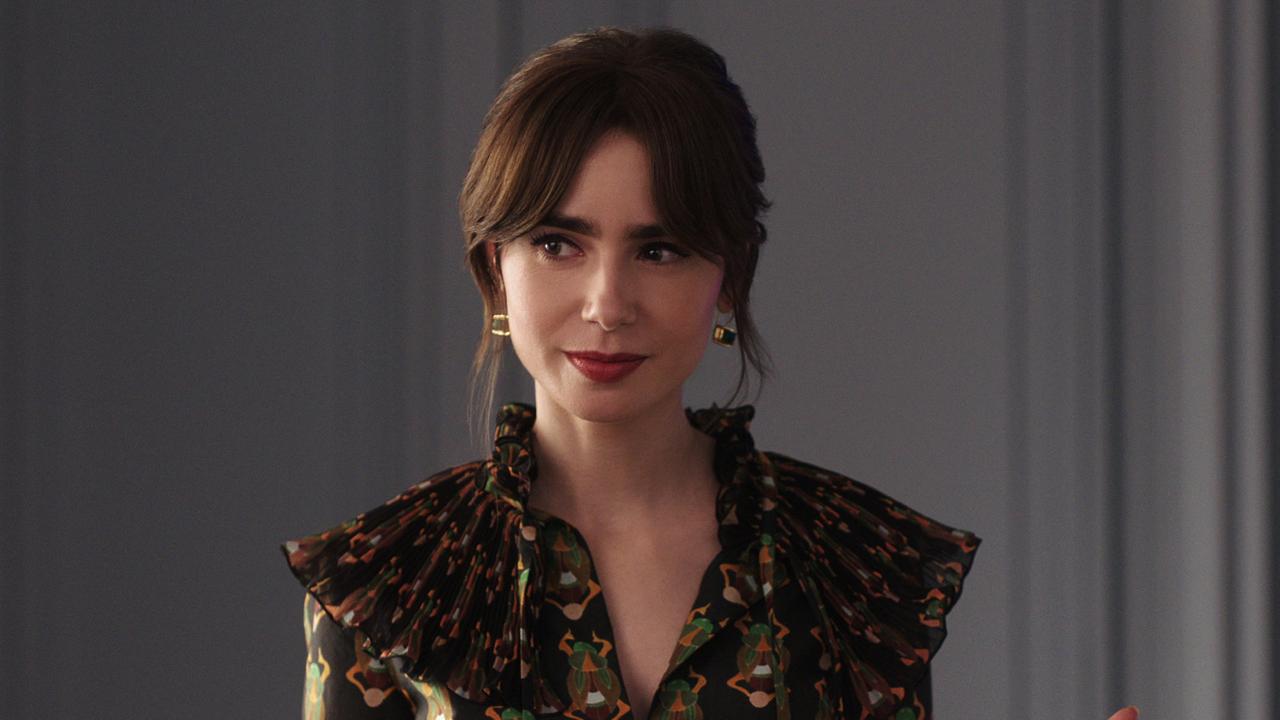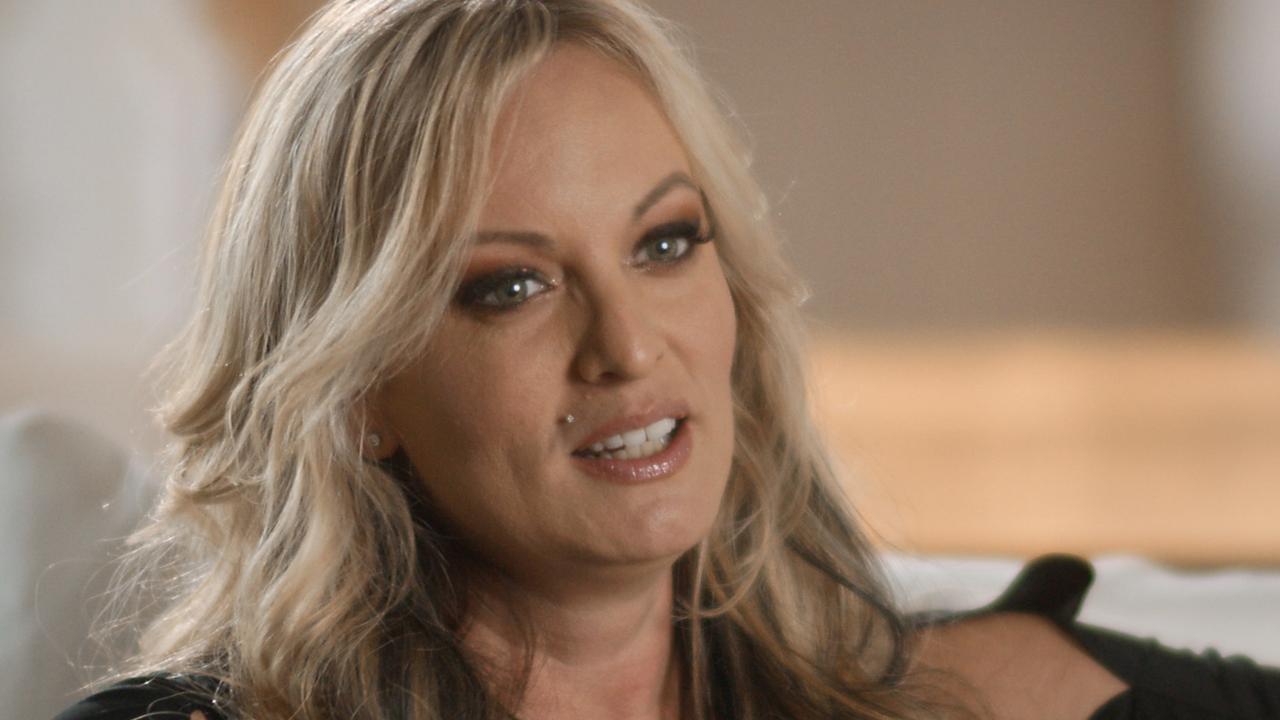Lord of the Rings: The Rings of Power, season two review
Its first season came with mixed reviews. Now Amazon’s mega-budget Lord of the Rings prequel is back, and this time it’s more compelling.
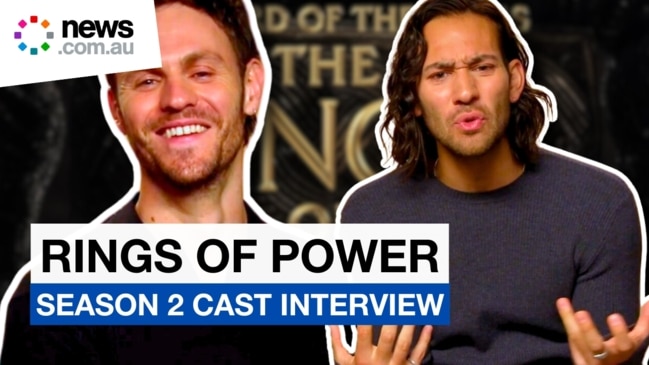
TV Reviews
Don't miss out on the headlines from TV Reviews. Followed categories will be added to My News.
Review: The Lord of the Rings, The Rings of Power, season two
The streaming world has changed. You feel it in your nerdy, nerdy bones. You hear it in the TV ads. You smell it in the abruptly renewed subscriptions to Amazon Prime.
Much that once was has returned. It’s the hype for a new season of the Lord of the Rings prequel series, The Rings of Power.
There were two broad reactions, among hardcore Tolkien fans, to the debut season two years ago, which we can sum up with a pair of handy quotes from the films.
One: “Give it to us raw, and wriggling.” (What I’m trying to convey here is the sort of joyful, almost transcendent enthusiasm that Smeagol has for a fish.)
Two: “I wish the show had never come to me. I wish none of this had happened!”
Those of you in the first group will love season two even more, perhaps, than Denethor loves munching on a cherry tomato. After each episode you’ll have juice dripping down your chin.
Those of you in the second? Well, that’s more complicated. I’m confident you will enjoy this more than season one, but it might not be enough to sate you.
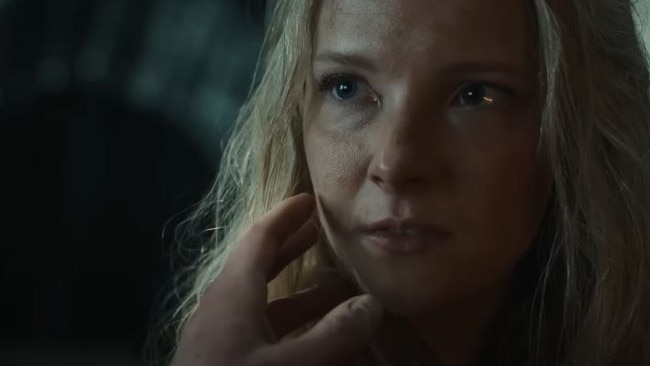
Season two is, ultimately, a more interesting and satisfying experience than its patchy predecessor, though it requires a truly elven level of patience from its viewers before the major pay-off arrives in its final hours.
These are long episodes, and they’re still dense with the earnest, often overly sentimental dialogue we expect from Lord of the Rings. There is a vanishingly thin line between nailing that vibe and straying across it into writing that makes you roll your eyes.
The line is breached multiple times. The callbacks – usually word-for-word recreations of quotes from the films – are far too frequent and heavy-handed. They simply do not need to be in the script. And more than once, you’ll find yourself muttering “no one would talk like that” at the television, even after accounting for the high fantasy setting.
But the story has heart, and its characters are sufficiently sympathetic (and well-acted) for you to forgive the occasional spasm of lame dialogue.
Plus, this season there’s a new element: Sauron. Not in disguise, posing as a guy with ambiguous morals. No, this is Sauron unleashed, as an unashamedly evil, manipulative schemer, and it just works.
Australian actor Charlie Vickers devours every scene. His performance as Sauron is justification enough, on its own, for the show’s existence. If we were judging Rings of Power on this part of its story alone, it would earn an easy five stars.
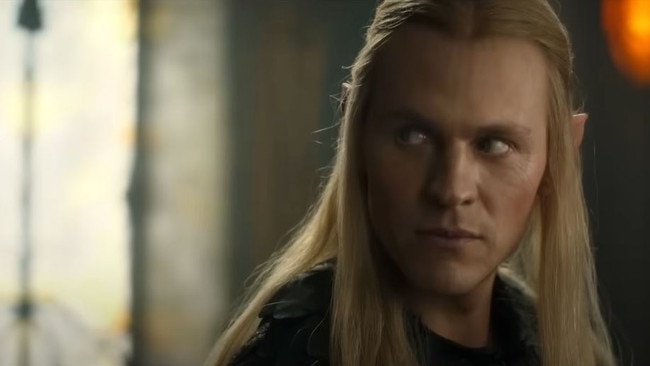
However. This iteration of the show suffers from the same fundamental problem as its first season: some of its plotlines are far, far more compelling than others, which makes the overall product feel uneven.
In season one, the storylines involving Galadriel, Halbrand, Elrond and even Durin were intriguing enough, but scenes focused on the Harfoots, and the characters in the Southlands, were dull diversions by comparison.
That hasn’t really been fixed. We get much less of the Harfoots here, and less of the Southlands (now Mordor), but still, whenever we spend a chunk of time in those parts of the world, it feels like a waste of precious screentime.
The Stranger (Daniel Weyman) and his Harfoot companion Nori (Markella Kavenagh) have travelled east to the barren land of Rhûn, which has not appeared on screen before, in search of his purpose. Here, more than anywhere else, things feels contrived and padded.
They face an underwhelming enemy faction, albeit one led by the always excellent Irish actor Ciaran Hinds (Mance Rayder from Game of Thrones). And the appearance of another auxiliary character, whose identity I shan’t spoil, will cause some, ahem, debate among the fanbase.
The writers have tried, mightily, to make this Rhûn plotline interesting, yet it still feels tacked on. You like these characters, sure, but you struggle to care about what they’re doing.
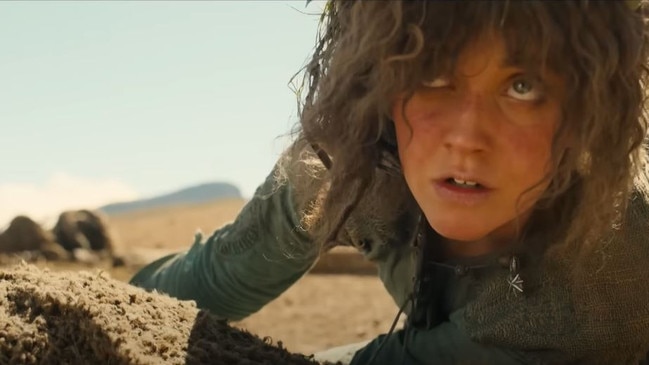
In the former Southlands, Nazanin Boniadi’s character Bronwyn has died off-screen. It was reportedly the actress’s choice not to return to the show (she has been prioritising her social advocacy, particularly regarding women’s rights in Iran, though Boniadi says that was “unrelated” to the decision).
That leaves a void. Bronwyn’s vaguely scandalous, interspecies romance with the elf Arondir (Ismael Cruz Cordova) was the emotional axis for this particular silo of the show; its absence now is felt badly.
The Númenorean character Isildur (Maxim Baldry) – a significant name for anyone with knowledge of Lord of the Rings’ lore – steps in as the new Southlands protagonist, having been left in Middle Earth by his countrymen, who believe he’s dead.
In Númenor itself, season one’s low-key power struggle between the “Faithful” – those men still friendly towards the elves and loyal to the Valar (kind of equivalent to gods in this world) – and a more xenophobic faction comes to the fore.
Isildur’s broody father Elendil (Lloyd Owen) is still among the show’s most magnetic presences on screen, even if the politics he navigates feel a bit simple, in the vein of late-stage Game of Thrones.
There are also, mercifully, far fewer utterances of “the sea is always right”, perhaps the weakest slogan of any fantasy faction in literary history.
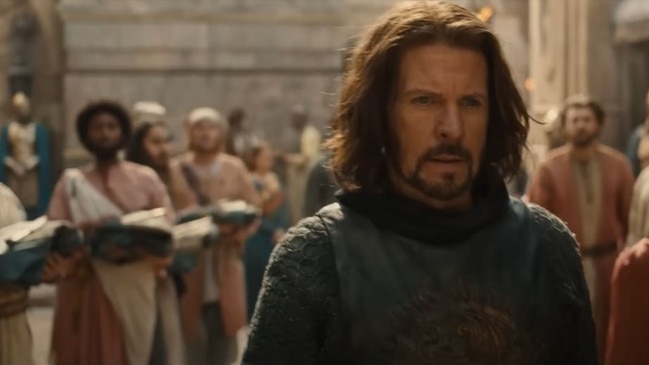
Now for the consistently good parts.
You’ll recall that, at season one’s end, the three elven rings of power were forged, and Galadriel (Morfydd Clark) discovered that the figure posing as Halbrand (Vickers) was, in fact, her arch-enemy Sauron.
That immediately creates tension among the elven characters: can they trust these rings? Should they use them, or cast them aside?
It’s not really a spoiler to say that, by the time of the films, more rings exist. Some are held by the dwarves, some by men, and the One Ring by Sauron himself, before he is vanquished at the end of the Second Age. The effort to create some of those rings, and the deception involved, forms the core of this season’s narrative.
Everything involving Sauron works well, particularly his interactions with the elven master-smith Celebrimbor (Charles Edwards), without whom he cannot forge the rings. Vickers is, at least mostly, playing a completely different character from the unassuming Halbrand.
The Sauron we see this season is far more sinister, but still charismatic enough to make you believe he is capable of deceiving other, otherwise intelligent characters. The internal logic of the story mostly holds, with only the occasional convenient leap.
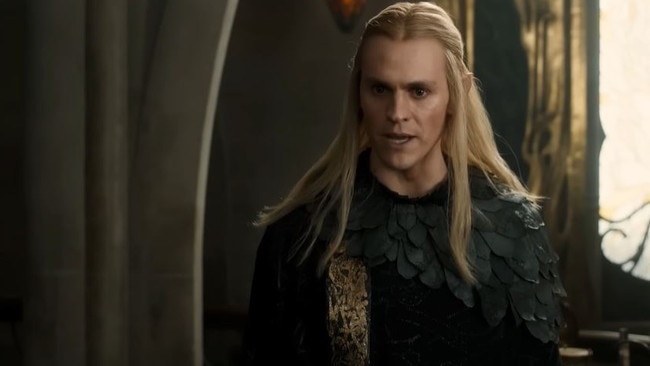
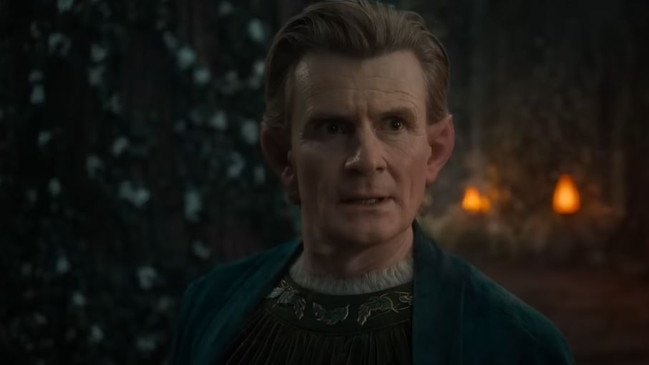
Much of season one focused on the mystery of Sauron’s identity, which was interesting up to a point, to be fair – but you can only hear Halbrand’s theme so many times before you notice it has the exact same melody, in Bear McCreary’s score, as Sauron’s. Bit of a giveaway.
It turns out there is richer soil for storytelling when the audience, but not the characters, knows who he is, and can clearly see how he manipulates his marks.
The orcs are still a factor, with Adar (played by Joseph Mawle in season one, now recast as Sam Hazeldine) entering the story in ways too fraught with spoilers to risk broaching here.
And the dwarves of Khazad-dûm are more consistently compelling, with King Durin (Peter Mullan) taking on a larger role. The performance of that character’s son Prince Durin (Owain Arthur) brings me back to that word from earlier: heart. He radiates it.
And, crucially, it’s believable. Durin’s dilemmas don’t feel hokey or contrived in the same way as some other characters’. They’re dramatic, but not melodramatic. He provides a certain emotional grounding that elevates the show as much as any action set-piece.
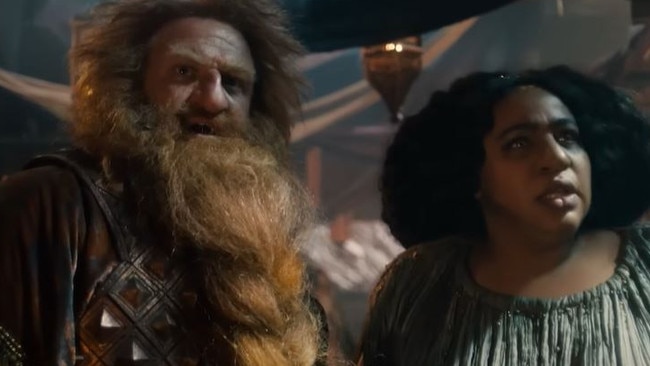
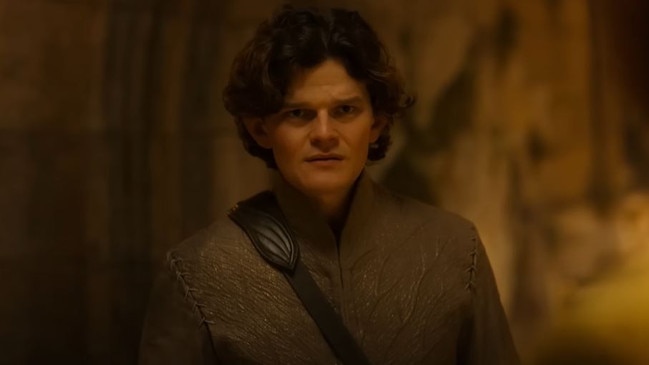
I should mention that the action, when it comes, is excellent. The mega-budget behind Rings of Power is evident in these moments – one battle in particular is comparable in scale to Peter Jackson’s films. It doesn’t reach the highs of Helm’s Deep, but gets closer than you’d expect, and easily surpasses anything from the first season.
If you are the kind of viewer with a passion for great production, great art design, or great spectacle, you will find this show sufficiently spellbinding in those areas to offset any gripes you have with it elsewhere.
Even putting all that stuff aside, though, there is some really, really good television here, if you can bring yourself to wade through four or five slower episodes to reach it. Granted, in a show where the episodes are, on average, about an hour long, that’s a hefty time investment.
If you bounced off season one, I suspect season two won’t hold your attention for long enough to make the effort worthwhile. Should you have the patience required, though, the payoff is quite spectacular.
The Lord of the Rings: The Rings of Power, season two
êêêê
The show’s first three episodes release simultaneously on August 29, on Amazon Prime
Originally published as Lord of the Rings: The Rings of Power, season two review




